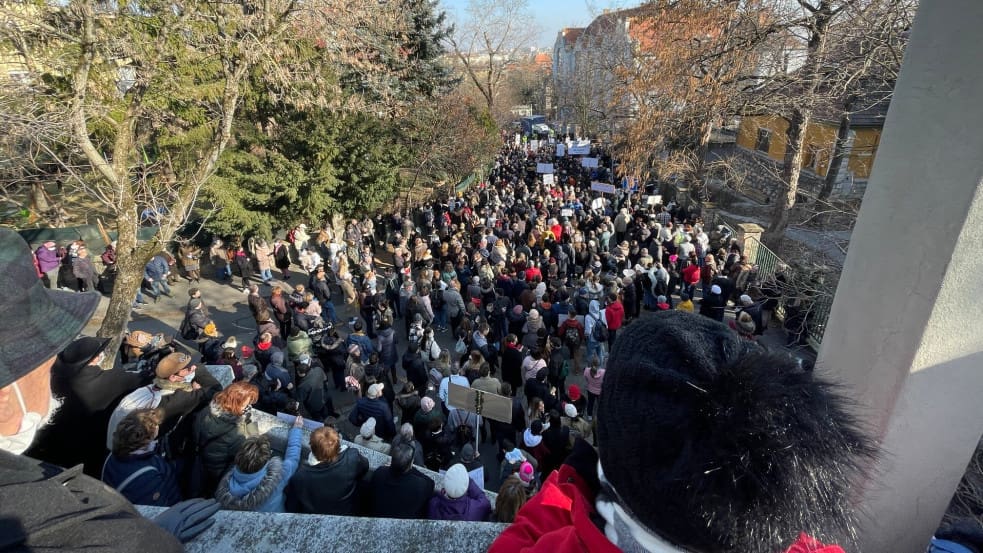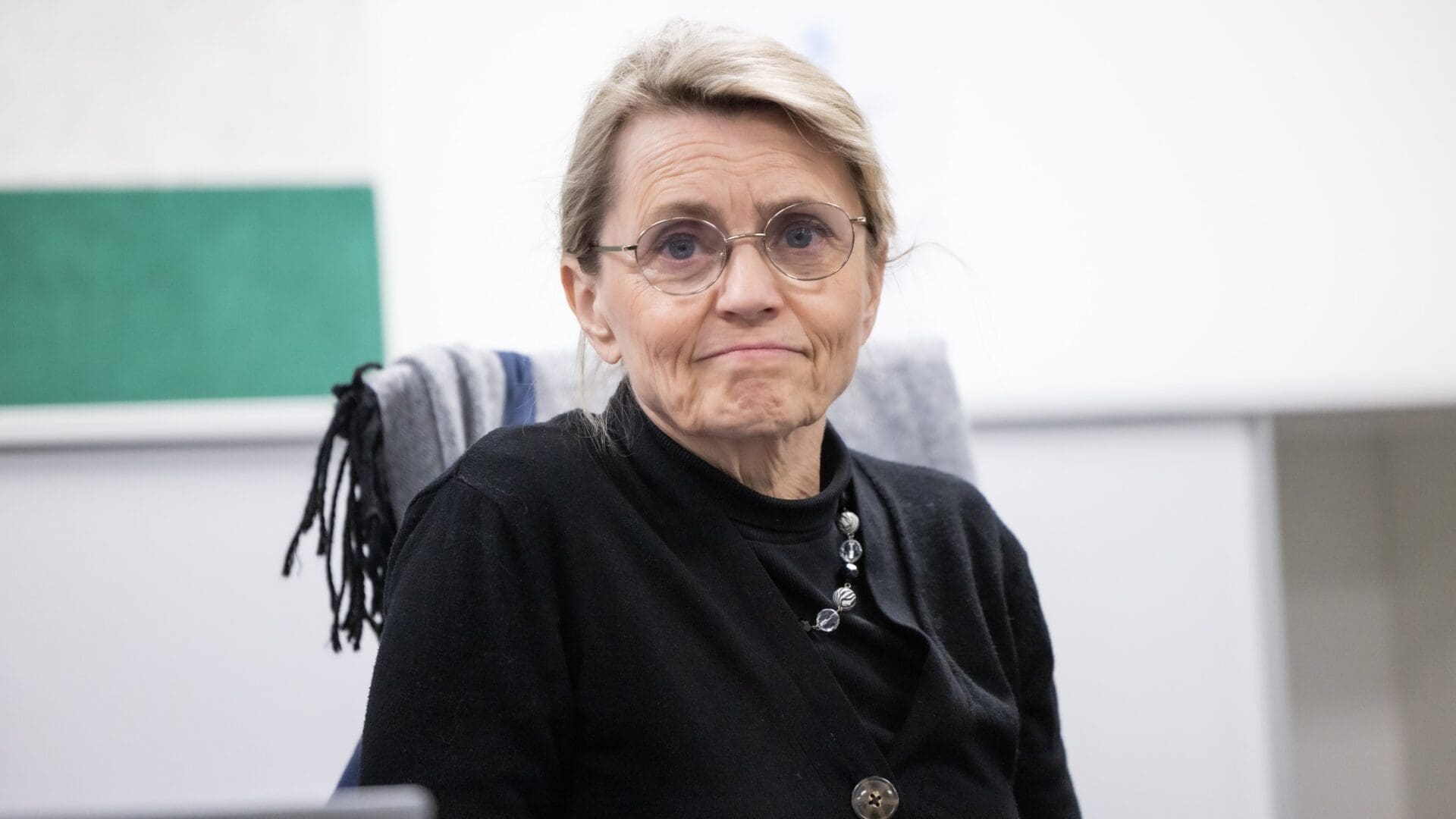After more than four years, on 14 November, the Helsinki Court of Appeal ruled that all the charges of hate speech against Finnish Member of Parliament, former Interior Minister Päivi Räsänen wouold be dismissed.
In a press release issued after the ruling, Räsänen wrote that she’s ‘relieved, happy and grateful to God and to all those who have supported me through this stage of my life. The decision was in line with my expectations—I never doubted for a moment that I had committed any offence in my writings and statements.’ She added: ‘The Court’s ruling is an important step forward for the freedom of religion of Bible-believing Christians, but also for freedom of expression more broadly and in general. I have considered it a privilege and an honour to defend freedom of expression, which is an absolutely fundamental right in a democratic state.’
From Censorship to Victory of Freedom of Expression and Belief
The criminal investigation started in 2019 when Räsänen, an observant Christian, tweeted her reaction to the Evangelical Lutheran Church of Finland’s support of a Pride event.
Her tweet did obviously not include anything even remotely resembling hate speech,
just a screenshot of the text of Bible verses 24-27 of Romans 1 of the New Testament. As the verses quoted clearly state that homosexuality is against God’s will, she posed the question of how the Evangelical Lutheran Church of Finland can reconcile its decision with the teachings of the Bible. As the Finnish MP phrased it in the press release, the target of her criticism was not a sexual minority but the leadership of her religious denomination.
Still, on 22 April 2021, the Prosecutor General brought charges against her for her tweet, as well as on the basis of a pamphlet she authored in 2004, under the title ‘Male and Female He Created Them’ and, additionally, a radio interview with Ruben Stiller, which was broadcast in 2019. The fabricated charges that were brought against the Finnish MP include ‘agitation against a minority group’, under a section of the Finnish criminal code on war crimes and crimes against humanity. Bishop Juhana Pohjola of the Evangelical Lutheran Missionary Diocese of Finland was also charged for publishing and making available the abovementioned pamphlet. He, too, was also acquitted by the Helsinki Court of Appeal on 14 November.
On 30 March 2022, the lower instance Helsinki District Court had already dismissed all charges against the Finnish MP, but the prosecutor decided to appeal the unanimous decision of the District Court to the Court of Appeal. Räsänen had to attend court hearings on her Bible-related statements on 31 August and 1 September 2023,
where she invoked the Finnish Constitution and the freedom of speech and religion enshrined in international treaties in her defence.
As Räsänen highlighted in her press release, the investigation against her ‘has lasted more than four years, has involved untrue accusations, several long police interrogations totalling more than 13 hours, preparations for court hearings, the District Court hearing and a hearing in the Court of Appeal, and this despite the unanimous acquittal by the District Court.’ She added: ‘This was not just about my opinions but about everyone’s freedom of expression. I hope that with this decision, others will not have to undergo the same ordeal.’
14 November was a day of victory for freedom of expression and religion as the Helsinki Court of Appeal dismissed the arguments of the state prosecutor and found that it ‘has no reason, on the basis of the evidence received at the main hearing, to assess the case in any respect differently from the District Court. There is, therefore, no reason to alter the final result of the District Court’s judgment.’ As ADF International reported, the court has also ordered the prosecution to pay tens of thousands in legal fees to cover costs incurred by both defendants. The prosecution may appeal a final time to the Supreme Court, with a deadline of 15 January 2024.
‘This court case and decision are historic for freedom of expression and religion. For the first time in a criminal case,
the court has weighed in on whether teachings linked to the Bible can be brought forth.’
I was pleased to have the opportunity in the Court of Appeal to correct the prosecution’s erroneous assertions about my views,’ wrote the Finnish MP in her reactions to the ruling. Räsänen also highlighted that a decision against her ‘would have been the demand for censorship: an order to remove social media updates or a ban on publishing a piece of writing. A sentence would have opened the door to a ban on similar publications and the threat of modern book burnings.’
Thousands of Hungarians Had Showed their Support for Räsänen
Both in 2022 and in August 2023, before Räsänen’s trials, thousands of Hungarians gathered in front of the Finish Embassy in Budapest to take a stand for her. It was a huge encouragement for the Finnish MP, who thanked Hungary’s strong support. Paul Coleman, Executive Director of ADF International, which helped Räsänen in her legal battle, was also deeply moved by the courage and initiative of the Hungarian people who supported the Finnish MP and highlighted that this is how ‘together, we can all stand for everyone’s right to freedom of speech and religion in Europe.’

The Ordeal Might Not Be Over Yet
The legal battle, unfortunately, may not be fully won. As the Finnish MP wrote in her press release, she hopes ‘that the prosecutor will be satisfied with the decision, but if not, I am ready to defend freedom of expression and religion also before the Supreme Court of Finland, and if necessary, even before the European Court of Human Rights.’ It soon turned out that Räsänen’s prosecutor is in fact not happy with the decision, and he is ‘seriously’ considering appealing to the Supreme Court as, in his opinion, ‘the appeal court did not add its own reasoning and merely adopted that of the district court’. He added that they didn’t receive a thorough opinion on where the limit of non-criminalization lies for offensive expressions.
Räsänen’s lawyer, Matti Sankamo, also considers the possibility of a new case ‘likely’, which wouldn’t be a surprise for his or her client. Sankarmo explained that in his view, although the High Court only accepts about six per cent of cases, the Supreme Court will hear this case as it ‘left many legal questions about the relationship between criminal cases and religious texts unanswered.’ Räsänen pointed out: ‘The fundamental human right to free speech remains under threat, and you don’t have to share my Christian faith to see that this freedom is essential.’








